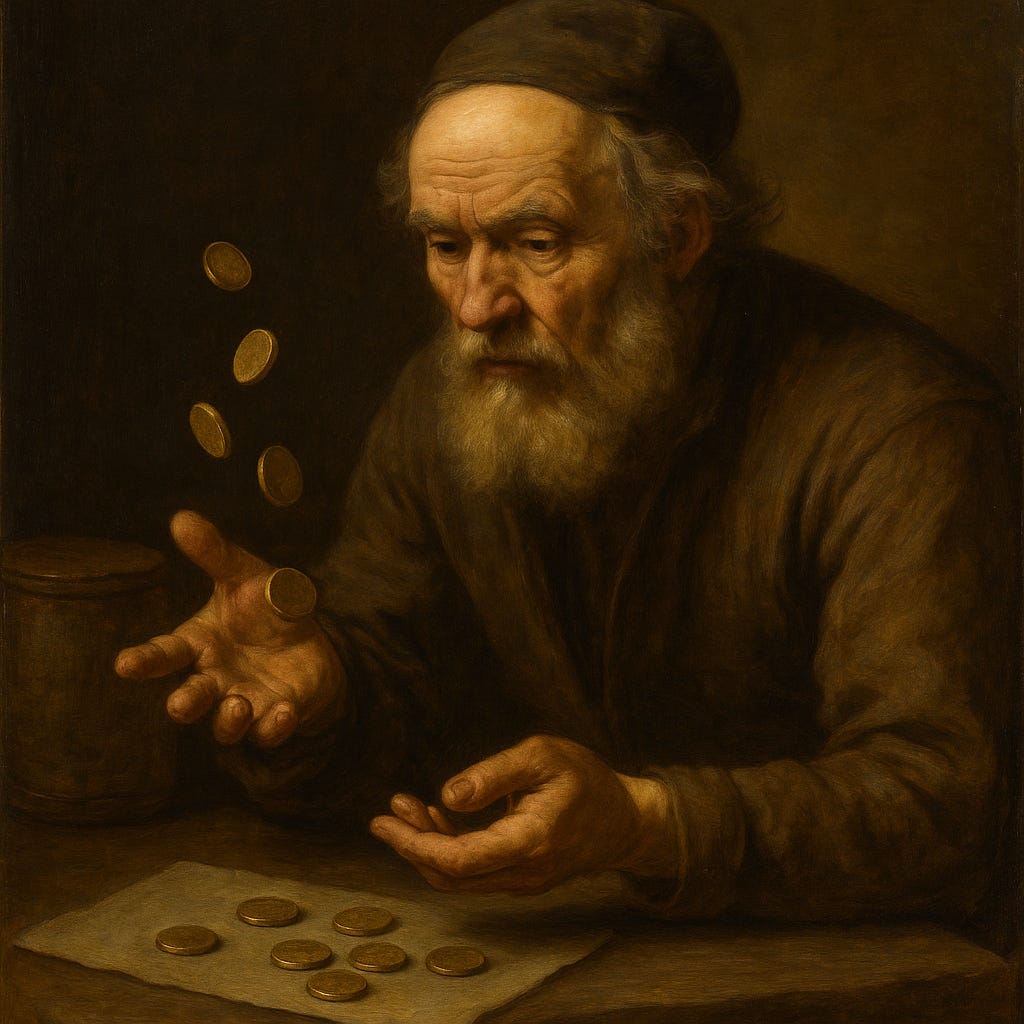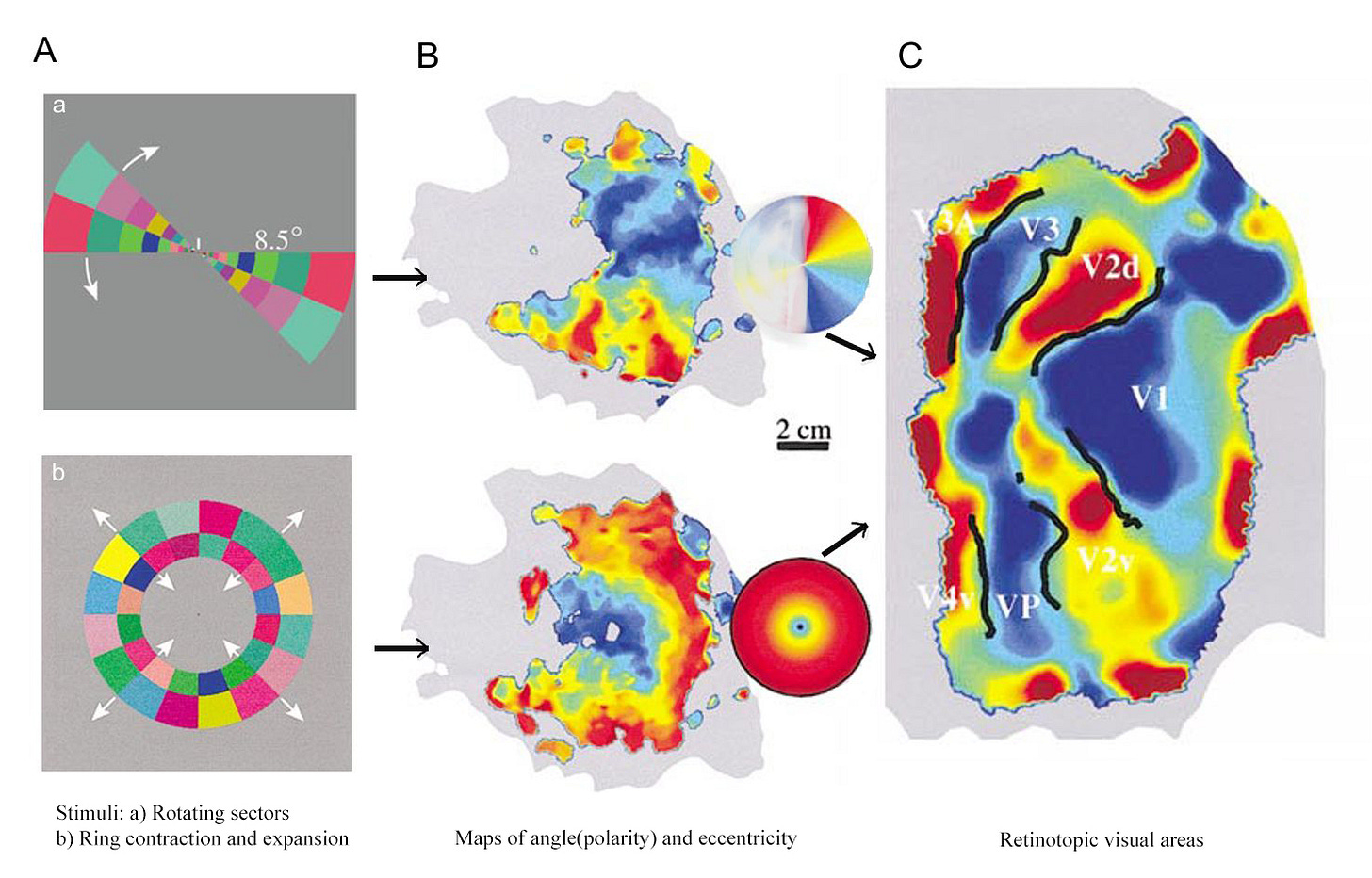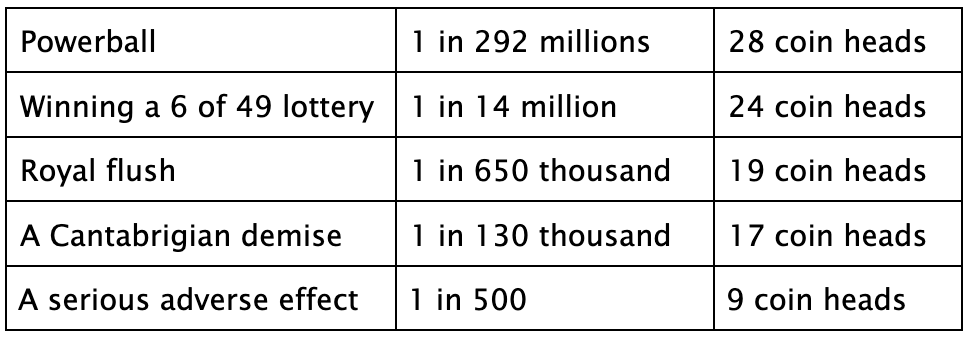Grounded intuition of low probability events
Our brains are visually biased, often misled by metaphors that zoom in on the rare event. Reframing improbabilities as the number of coin tosses needed to match the odds helps ground the risk.
Human minds struggle with grasping very low probabilities. We’re asked to act on statements like “less than 1 in 100,000,” and our language reaches for metaphors: needle in a haystack, grain of sand on a beach, trying to visualize the improbable.
The foveated bias of visual acuity
Human perception doesn’t work like a camera sensor. From the eye to the cortex, our vision is deeply uneven. We stitch together the visual scene by rapidly moving our eyes, collecting sharp detail from a tiny central patch: the fovea, which spans just 1 to 2 degrees of visual angle. That’s less than one-thousandth of the space in front of us.
Despite its size, that foveated region claims half of our primary visual cortex.
Figure 1: Retinotopic projections into the visual cortex [wiki]
What dominates the physical eye and visual cortex likely dominates the mind’s eye too. So when someone says an event has a one-in-a-million chance and compares it to “hitting a tissue on a football field,” our visual imagination immediately zooms in on the tissue. We fail to perceive the proper ratio. The metaphor breaks.
Reframing the risks
Let’s take a few examples of highly unlikely events:
Winning a 6/49 lottery: 1 in 14 million
Winning Powerball: 1 in 292 million
Being dealt a royal flush on the first hand: 1 in 650,000
Dying today as a 40-year-old man in Cambridge (either one): 1 in 130,000
Serious adverse drug reaction: “less than 1 in 500”
Now, let’s ground those numbers with something physical: coin tosses. The logarithm base 2 of a number tells us how many heads in a row would equal that probability. Google log2(14 million), and you get 24. That means your chance of winning the lottery is equivalent to flipping 24 heads in a row.
Here’s a quick table:
By converting abstract numbers into a simple physical experiment we build intuition. We feel the rarity.
I call it the grounding coin toss.






